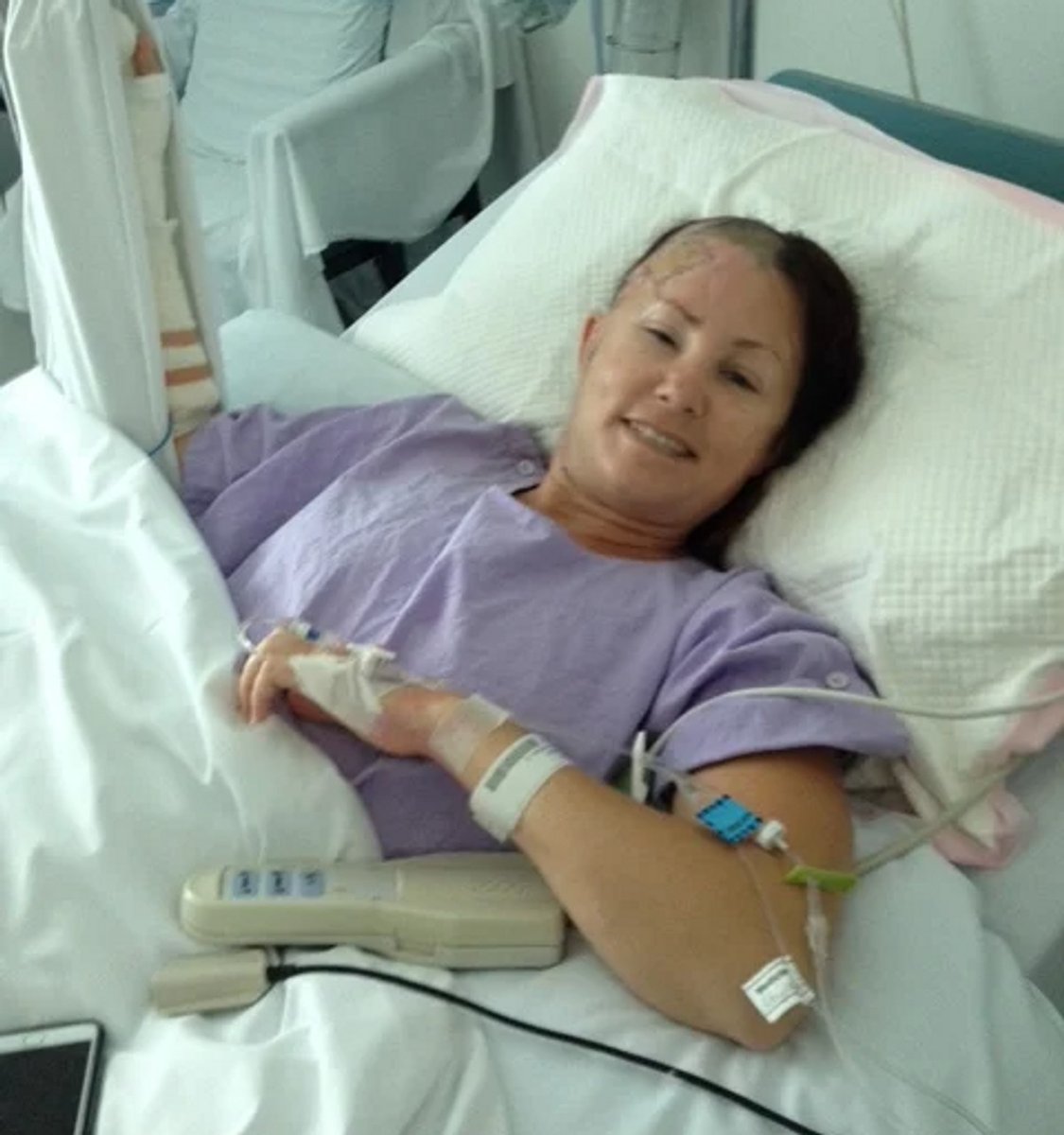Content warning: this post discusses domestic violence.
When Simone O'Brien's first marriage ended, her youngest child was only a year old. There was nothing sinister to the breakup. Simone describes the experience as amicable, and she went on to build a happy life with her children, immersing herself in work and sporting activities.
A country girl at heart, Simone put her energy into her children. It wasn't until she was 37 and her youngest child was ten, that Simone decided it was time to consider stepping out into the dating world. Disinterested in bars or clubs, she turned to an online dating site.
Watch: Ariel Bombara speaks about living under an abusive father. Article continues after the post.
"I wasn't IT savvy, but I was scrolling through and thinking about who's safe and who's not. I clicked on a real estate agent — that was my safety net because I knew he had to have a police check to get his real estate license."
Andy* seemed charming, considerate, and well-spoken. He took his time, earning her trust through weeks of online chats before exchanging numbers. Eventually, they met for dinner. "He greeted me with a bunch of flowers, which made me go all gooey because I hadn't received flowers for so long," Simone admits.





























































































